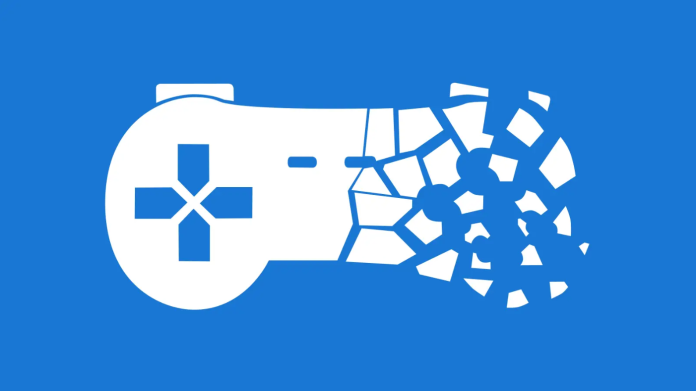The fight to stop publishers from erasing purchased video games forever has reached a pivotal milestone. Over one million people have now signed the European Citizens’ Initiative (ECI) petition launched by “Stop Killing Games“, a grassroots campaign demanding legal protections against the growing trend of publishers remotely disabling titles, even those consumers have paid for. But despite the symbolic victory, campaign organizers warn that the battle is far from won.
Spearheaded by video game creator Ross Scott, known for his long-running YouTube channel Accursed Farms, the initiative took shape in April 2024 after Ubisoft’s controversial shutdown of The Crew. The open-world racing game was rendered entirely unplayable, even for those who had purchased it. That incident became the spark for a wider consumer-led movement, calling for legislation requiring publishers operating in the European Union to maintain basic functionality of their games, even after official support ends.
As of July 6, the campaign has amassed more than 1.193 million signatures, urging the EU to “prevent the remote disabling of videogames by the publishers, before providing reasonable means to continue functioning of said videogames without the involvement from the side of the publisher.” The surge in public support has ignited celebration across the gaming community and is widely viewed as a turning point for consumer rights in the digital age.
Still, Scott issued a sobering update in his latest video.
“The European Citizens’ Initiative has crossed 1 million signatures—except it hasn’t,” he warned. “This is going to kill morale, but there are two things going on here. The first we knew was coming. Every time somebody makes a mistake when they sign the Initiative, their signature gets invalidated. So that means we need more signatures to make up for everybody’s mistakes.”
Unlike casual online petitions, the ECI is a formal political mechanism. Any small error, such as missing information or mismatched documentation, can result in disqualification of a signature. Worse still, Scott revealed he had received reports of fabricated signatories, a serious legal offense under EU law that could jeopardize the campaign’s credibility.
“This is not a Change.org petition,” he said bluntly. “Spoofing signatures on it is a crime.”
To compensate for such discrepancies, the campaign team has revised its internal goal to 1.4 million verified signatures by the July 31 deadline, in hopes of building a safe margin above the minimum threshold after verification. That buffer, Scott noted, is urgently needed.
Despite the procedural hurdles, “Stop Killing Games” has gained momentum in recent weeks, thanks in large part to endorsements from high-profile creators such as such as Jacksepticeye, Ludwig, Cr1TiKaL (penquinz0), and others. Their outreach brought a wave of visibility the campaign had previously struggled to attain. In fact, just weeks earlier, Scott had uploaded a video titled “The End of Stop Killing Games,” expressing concern over dwindling mainstream attention and engagement.
Since then, the campaign has rebounded with renewed force. Still, its success depends not just on public support, but on meeting technical verification standards and securing EU legislative action. If successful, the initiative could lead to new laws mandating that online-only and multiplayer titles, such as Anthem (BioWare/EA), which recently announced its final server shutdown, remain functional in some capacity post-support. The same protections would extend to single-player games that rely on online components to function.
The core issue goes far beyond nostalgia or collector sentiment. As digital storefronts become the norm and live-service models proliferate, consumers are increasingly exposed to abrupt game removals or permanent shutdowns, often with no refund or offline alternative. According to the campaign, this practice “challenges the concept of ownership itself, where the customer is left with nothing after ‘buying’ a game.”
In short, consumers are paying for products that can be remotely destroyed at any time.
“The ability for a company to destroy an item it has already sold to the customer long after the fact is not something that normally occurs in other industries,” the initiative argues. Because digital games often require licensing agreements just to launch, traditional consumer protections are routinely bypassed.
Outside the EU, the movement is gaining traction as well. “Stop Killing Games” has escalated formal complaints to consumer protection agencies in France, Germany, and Australia. Meanwhile, a related UK petition, calling for a ban on disabling purchased games, has garnered over 1.66 million signatures, qualifying it for parliamentary debate.
What began as a modest protest has now grown into one of the most prominent consumer rights movements in modern gaming. Whether it succeeds in delivering lasting policy change remains to be seen, but its growing influence is undeniable. Scott remains cautiously optimistic, noting if the campaign hits the verified threshold, the EU will be obligated to review it, and possibly hold public hearings or propose legislative reforms—potentially setting a global precedent.
For now, the campaign is focused on its final push. With less than a month remaining, the campaign is urging EU citizens to sign and verify their information accurately. For those outside the EU, the most valuable contribution is spreading the word while the clock is still ticking.
Click here to sign the official petition.
Words by Khushboo Malhotra
Want more in-depth coverage of gaming culture, consumer rights and new game releases? Follow us on X @indie_pendent and discover more stories at The Indiependent!
Support The Indiependent
We’re trying to raise £200 a month to help cover our operational costs. This includes our ‘Writer of the Month’ awards, where we recognise the amazing work produced by our contributor team. If you’ve enjoyed reading our site, we’d really appreciate it if you could donate to The Indiependent. Whether you can give £1 or £10, you’d be making a huge difference to our small team.

